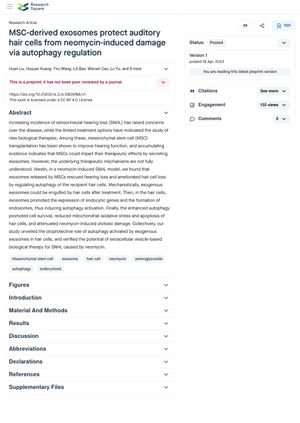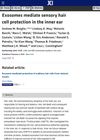MSC-Derived Exosomes Protect Auditory Hair Cells From Neomycin-Induced Damage Via Autophagy Regulation
April 2023
in “
Research Square (Research Square)
”

TLDR Exosomes protect ear hair cells from damage by controlling cell waste removal, potentially helping treat hearing loss.
The study investigates the role of mesenchymal stem cell (MSC)-derived exosomes in protecting auditory hair cells from damage caused by neomycin, a common cause of sensorineural hearing loss (SNHL). The researchers found that these exosomes could be absorbed by hair cells and trigger the activation of autophagy, a cellular process that helps maintain cell health. This activation led to increased cell survival, reduced mitochondrial oxidative stress, and decreased apoptosis of hair cells, thereby mitigating the ototoxic damage caused by neomycin. This suggests that exosome-based therapies could potentially be used to treat SNHL.






